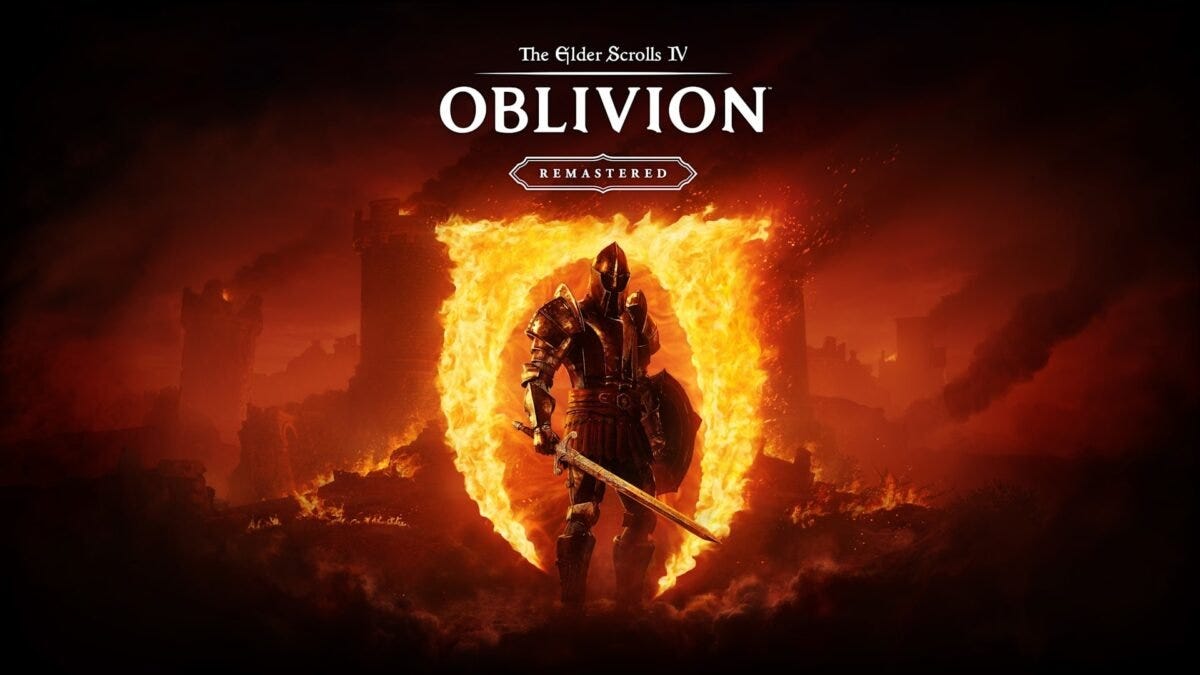There are certain games that stay with you for life. For me, The Elder Scrolls IV: Oblivion is one of those games. I still vividly remember the anticipation leading up to its release in 2005 on the Xbox 360. I was buzzing with excitement, counting down the days. When I finally got my hands on it, I knew I was in for something special—but I had no idea just how many years of joy and adventure it would bring me. I played it endlessly. Whether I was shutting Oblivion gates, joining the Dark Brotherhood, or simply wandering through the forests of Cyrodiil with no real plan, I loved every second. So when Bethesda announced a full remaster, I didn’t even hesitate. I had to get it.
Now that I’ve sunk a good chunk of time into the Oblivion Remaster, I can say this with confidence: it’s everything I hoped it would be and more. This isn’t just a shiny coat of paint. This is a faithful, heartfelt return to a classic—nostalgia done properly, and a reminder of why I fell in love with the Elder Scrolls series in the first place.
Let’s start with the visuals, because wow. The jump to Unreal Engine 5 is genuinely breathtaking. Cyrodiil looks incredible. The lighting is dynamic and cinematic without feeling artificial, the water effects shimmer realistically, and the forests feel genuinely dense and alive. Cities like the Imperial City and Anvil look better than ever, and yet they’re still instantly recognisable. Bethesda hasn’t tried to reinvent the aesthetic—they’ve simply elevated it. This feels like how my memory thought Oblivion looked back in 2005, which is probably the biggest compliment I can give.
But here’s where the remaster really shines: it retains the original game’s identity, warts and all. And I mean that in the best possible way. So much of Oblivion’s charm came from its eccentricities—the over-the-top facial expressions, the bizarre but brilliant NPC conversations, and yes, the glorious jank that made each encounter feel unpredictable. That hasn’t been erased. The developers clearly understood that Oblivion's soul wasn’t in how polished it was, but in how immersive and strange and oddly charming it could be. The humour is still there. The guards still shout at you with unnecessary drama. The world still feels like it’s spinning on its own strange axis—and I wouldn’t have it any other way.
That said, they have smoothed out some of the rougher edges, and those changes are very welcome. The animations have been completely redone. Characters no longer move like mannequins on strings. Combat is smoother, and spells look genuinely powerful when cast. Sword swings have proper weight now, and bows feel snappy and satisfying. The controls are tighter, too, making combat and exploration more enjoyable across the board. It’s still recognisably Oblivion, but with far better execution.
One of the biggest improvements is in the levelling system. Long-time fans will remember how fiddly and unforgiving the original system was. You had to level up in very specific ways to get the most out of your stat increases, and one wrong skill-up could lead to inefficient character builds. That’s all been revised. Levelling is now much more intuitive and player-friendly, but it still offers deep customisation. You can still mould your character exactly how you want, but without the spreadsheet-level micromanagement. It’s a smart update that respects the original’s depth while removing unnecessary frustration.
The UI has also seen a much-needed refresh. Inventory management, quest tracking, and menus are all far more usable now, especially on a controller. The clunky interface of the original hasn’t aged well, and this new system feels modern without losing the medieval scroll-and-parchment aesthetic that suited the game’s tone.
Audio has received some love, too. The soundtrack remains as iconic as ever—Jeremy Soule’s sweeping orchestral pieces still send a shiver down my spine—but the remaster enhances ambient sounds and adds new environmental audio that helps make the world feel fuller. The voice acting, complete with its classic quirks, is still intact. Yes, characters still sound suspiciously similar (thanks to a very small voice cast originally), but that’s part of the game’s identity, and I’m glad they didn’t try to re-record everything. It wouldn’t have been the same.
What really gets me, though, is how Oblivion Remaster respects its own legacy. So many remasters fall into the trap of over-polishing or modernising their source material to the point of losing what made the game special in the first place. Bethesda avoided that. They knew exactly what made Oblivion tick. They’ve kept the personality, the quirks, the tone. This still feels like Oblivion, not just in content, but in spirit.
For fans like me who grew up with the game, this is pure joy. Every moment is like slipping back into a warm, familiar memory—but one that’s now rendered in stunning clarity and with far more comfort. And for new players coming in for the first time, this is arguably the best way to experience what remains one of the most endearing RPGs ever made.
The Oblivion Remaster is everything a remaster should be. It’s not trying to rewrite history—it’s celebrating it. It’s improved in all the right places while keeping the weird, wonderful core that made the original unforgettable. I’m back in Cyrodiil, loving every moment all over again.
And honestly? It feels like coming home.
A masterpiece given new life. It’s an easy 10/10 for me.






I might buy it right now based on this review and drive my career off a cliff.